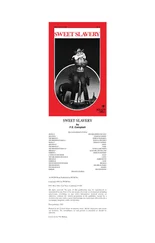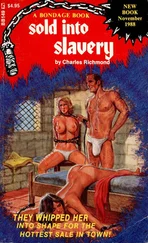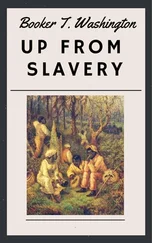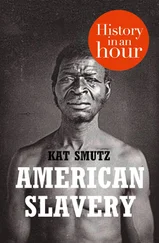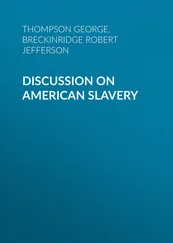Rev. PHINEAS SMITH, of Centreville, N. Y., who has resided four years at the south, says: "Often when the slaves are sick, their accustomed toil is exacted from them. Physicians are rarely called for their benefit."
Rev. HORACE MOULTON, a minister of the Methodist Episcopal church in Marlborough, Mass., who resided a number of years in Georgia, says:
"Another dark side of slavery is the neglect of the aged and sick. Many when sick, are suspected by their masters of feigning sickness, and are therefore whipped out to work after disease has got fast hold of them; when the masters learn, that they are really sick, they are in many instances left alone in their cabins during work hours; not a few of the slaves are left to die without having one friend to wipe off the sweat of death. When the slaves are sick, the masters do not, as a general thing, employ physicians, but "doctor" them themselves, and their mode of practice in almost all cases is to bleed and give salts. When women are confined they have no physician, but are committed to the care of slave midwives. Slaves complain very little when sick, when they die they are frequently buried at night without much ceremony, and in many instances without any; their coffins are made by nailing together rough boards, frequently with their feet sticking out at the end, and sometimes they are put into the ground without a coffin or box of any kind.
PERSONAL NARRATIVES, PART II.
Table of Contents
Testimony of the Rev. William T. Allan
Late of Alabama
Table of Contents
Mr. Allan is a son of the Rev. Dr. Allan, a slaveholder and pastor of the Presbyterian Church at Huntsville, Alabama. He has recently become the pastor of the Presbyterian Church in Chatham, Illinois.
"I was born and have lived most of my life in the slave states, mainly in the village of Huntsville, Alabama, where my parents still reside. I seldom went to a plantation, and as my visits were confined almost exclusively to the families of professing Christians, my personal knowledge of slavery, was consequently a knowledge of its fairest side, (if fairest may be predicated of foul.)
"There was one plantation just opposite my father's house in the suburbs of Huntsville, belonging to Judge Smith, formerly a Senator in Congress from South Carolina, now of Huntsville. The name of his overseer was Tune. I have often seen him flogging the slaves in the field, and have often heard their cries. Sometimes, too, I have met them with the tears streaming down their faces, and the marks of the whip, ('whelks,') on their bare necks and shoulders. Tune was so severe in his treatment, that his employer dismissed him after two or three years, lest, it was said, he should kill off all the slaves. But he was immediately employed by another planter in the neighborhood. The following fact was stated to me by my brother, James M. Allan, now residing at Richmond, Henry county, Illinois, and clerk of the circuit and county courts. Tune became displeased with one of the women who was pregnant, he made her lay down over a log, with her face towards the ground, and beat her so unmercifully, that she was soon after delivered of a dead child.
"My brother also stated to me the following, which occurred near my father's house, and within sight and hearing of the academy and public garden. Charles, a fine active negro, who belonged to a bricklayer in Huntsville, exchanged the burning sun of the brickyard to enjoy for a season the pleasant shade of an adjacent mountain. When his master got him back, he tied him by his hands so that his feet could just touch the ground--stripped off his clothes, took a paddle, bored full of holes, and paddled him leisurely all day long. It was two weeks before they could tell whether he would live or die. Neither of these cases attracted any particular notice in Huntsville.
"While I lived in Huntsville a slave was killed in the mountain near by. The circumstances were these. A white man (James Helton) hunting in the woods, suddenly came upon a black man, and commanded him to stop, the slave kept on running, Helton fired his rifle and the negro was killed. 5
"Mrs. BARR, wife of Rev. H. Barr of Carrollton, Illinois, formerly from Courtland, Alabama, told me last spring, that she has very often stopped her ears that she might not hear the screams of slaves who were under the lash, and that sometimes she has left her house, and retired to a place more distant, in order to get away from their agonizing cries.
"I have often seen groups of slaves on the public squares in Huntsville, who were to be sold at auction, and I have often seen their tears gush forth and their countenances distorted with anguish. A considerable number were generally sold publicly every month.
"The following facts I have just taken down from the lips of Mr. L. Turner, a regular and respectable member of the Second Presbyterian Church in Springfield, our county town. He was born and brought up in Caroline county, Virginia. He says that the slaves are neither considered nor treated as human beings. One of his neighbors whose name was Barr, he says, on one occasion stripped a slave and lacerated his back with a handcard (for cotton or wool) and then washed it with salt and water, with pepper in it. Mr. Turner saw this. He further remarked that he believed there were many slaves there in advanced life whose backs had never been well since they began to work.
"He stated that one of his uncles had killed a woman--broke her skull with an ax helve: she had insulted her mistress! No notice was taken of the affair. Mr. T. said, further, that slaves were frequently murdered.
"He mentioned the case of one slaveholder, whom he had seen lay his slaves on a large log, which he kept for the purpose, strip them, tie them with the face downward, then have a kettle of hot water brought--take the paddle, made of hard wood, and perforated with holes, dip it into the hot water and strike--before every blow dipping it into the water--every hole at every blow would raise a 'whelk.' This was the usual punishment for running away.
"Another slaveholder had a slave who had often run away, and often been severely whipped. After one of his floggings he burnt his master's barn: this so enraged the man, that when he caught him he took a pair of pincers and pulled his toe nails out. The negro then murdered two of his master's children. He was taken after a desperate pursuit, (having been shot through the shoulder) and hung.
"One of Mr. Turner's cousins, was employed as overseer on a large plantation in Mississippi. On a certain morning he called the slaves together, to give some orders. While doing it, a slave came running out of his cabin, having a knife in his hand and eating his breakfast. The overseer seeing him coming with the knife, was somewhat alarmed, and instantly raised his gun and shot him dead. He said afterwards, that he believed the slave was perfectly innocent of any evil intentions, he came out hastily to hear the orders whilst eating. No notice was taken of the killing.
"Mr. T. related the whipping habits of one of his uncles in Virginia. He was a wealthy man, had a splendid house and grounds. A tree in his front yard, was used as a whipping post. When a slave was to be punished, he would frequently invite some of his friends, have a table, cards and wine set out under the shade; he would then flog his slave a little while, and then play cards and drink with his friends, occasionally taunting the slave, giving him the privilege of confessing such and such things, at his leisure, after a while flog him again, thus keeping it up for hours or half the day, and sometimes all day. This was his habit.
Читать дальше

